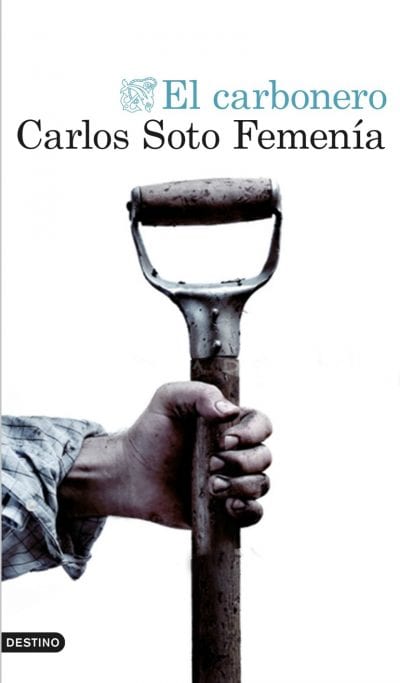
Last September, the Editorial Destination launched one of its great proposals of the season included in its collection Anchor and Dolphin: El carbonero, by Carlos Soto Femenía. A novel set in rural Mallorca in the 50s in which various characters forged by fear, revenge and an untamed nature coexist. We go there with your review.
Blood and coal

La sitja, rustic construction for the production of typical charcoal from the Sierra de Tramuntana, in Mallorca. The attached barrack served as a refuge for the charcoal burner for months. Two key elements in the setting of El Carbonero. ⒸTrailrunningMallorca.
The charcoal burner begins with the murder of Marc's mother, a thirteen-year-old boy and son of a charcoal burner from the vicinity of the town of Caimari, on the island of Mallorca. An event around which the whole story revolves, presenting a father and son united by the solitude of the holm oaks and the burning of the sitja, a rustic warehouse where Marc's father makes coal. The peddler, a man always linked to debt, is one of his neighbors, while his two children, Arnau and Aina, become Marc's companions throughout the seven years that elapse until the protagonist, who continues to drag lust for revenge, he sets out to do justice and find his mother's murderers. The answers will not take long to come from their own environment, starting a journey marked by anger and violence.
El Carbonero is a rural drama that, above all, is brilliantly documented. In fact, at the end of the book the author himself reviews the bibliography that allowed him to locate himself in that geographical setting so unknown to the literature of our country and turned by the author into a raw and wild microcosm where all those characters marked by their fears live immersed and hell. In turn, the work stands out for its majestic, almost poetic prose, with which Soto Femenía brings us closer to the silence of the holm oaks, the dirt of the coal or the sighs of passion between its characters, since the novel also includes a love triangle of the most peculiar.
A good job that allows you to enjoy a simple but effective story, which consists of eighteen chapters but that could perfectly be divided into three blocks in which we witness the main motive of the work: Marc's desire for revenge, its protagonist.
The author: Carlos Soto Femenía

Carlos Soto Femenía, author of El carbonero.
Carlos Soto Feminine (Palma de Mallorca, 1966) spent his childhood and adolescence in Madrid, where he developed a passion for literature as a form of expression that would lead him to study Philosophy. Shortly after, fascinated by new technologies, he began his Computer Science degree in Mallorca, a place where his family would return years later. From then on, Femenía settled in Palma de Mallorca, where he began to work as a computer scientist, but without forgetting to write with short stories awarded in various literary competitions, among them Silverio Lanza de Getafe, and novels such as Anointing (Alfonso VIII award) or Enemy numberless (Ákaba Beach, 2004).
Years later, in one of those moments of "wandering" on the Internet, as he said recently in an interview, Soto Femenía came across an article that spoke of a charcoal burner who, until thirty years ago, continued to practice his profession in a world where the technological boom seems to have made us forget the presence of those simpler jobs, of the men who still live tied to the land and its inclement weather.
This reflection would start the creation of El carbonero, novel published by Destino publishing house last September and cataloged by some voices, including that of the same Lawrence Silva, as "a rare delicatessen."
And actually, he was not wrong.
You fancy read El Carbonero?
Have you read it already?